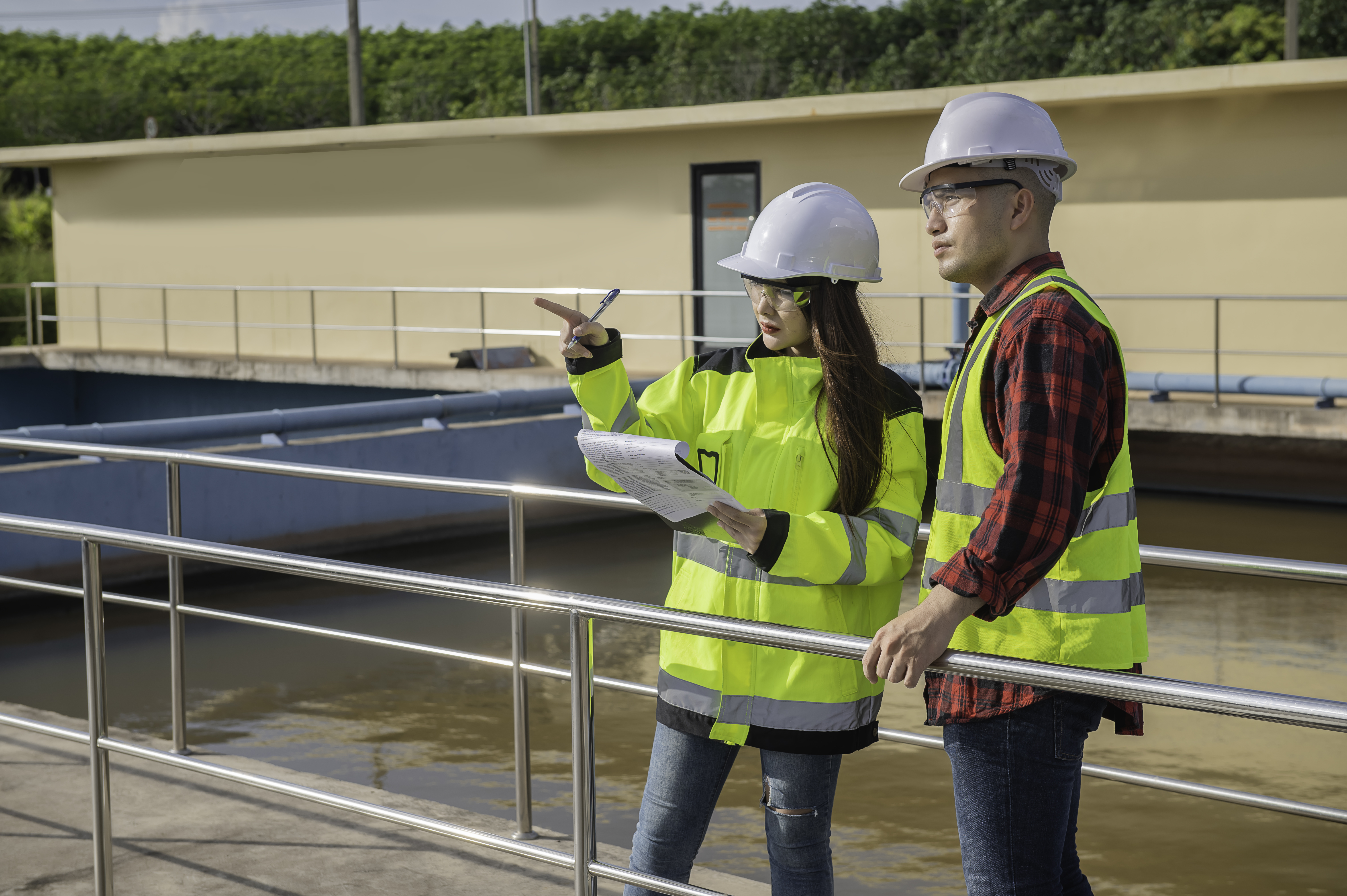The Hidden Costs and Risks of Off-Site Wastewater Transport
While hauling away wastewater may seem like a quick and easy option, it isn’t an economical or sustainable option in the long run. This seemingly straightforward process carries a hefty price tag, both financially and in terms of potential environmental liability.
Learn More!
Beyond Residential Wastewater: The Need for Specialized Handling
Unlike the wastewater generated in homes, which can typically be treated by municipal sewer systems, commercial wastewater often requires special handling due to its unique composition. Industrial processes, cleaning operations, and other activities can generate wastewater with contaminants that aren’t suitable for standard municipal treatment facilities. As a result, this kind of wastewater needs to be hauled away for specialized treatment processes before it can be safely released or reused.
The Burden of "Cradle-to-Grave" Responsibility
One of the biggest drawbacks of off-site wastewater transport is the concept of "cradle-to-grave" liability. Even after the wastewater leaves a facility, a company remains legally responsible for its proper disposal and any environmental impact it might have. This means unforeseen future costs associated with potential environmental damage or changes in regulations could land back on a company’s shoulders.
Industry professionals want to avoid a scenario where they pay to have wastewater hauled away, but years later, new regulations require additional treatment or a contamination event occurs at the disposal facility. Because a company is legally responsible for the waste "from cradle to grave," a company could face significant financial repercussions. This adds a layer of risk and uncertainty that can be avoided with alternative disposal methods.
.jpg?width=6048&height=4024&name=environmental-engineers-work-wastewater-treatment-plantswater-supply-engineering-working-water-recycling-plant-reusetechnicians-engineers-discuss-work-together%20(1).jpg)
The Hauling Process: A Multi-Step Journey
The off-site wastewater transport process is a multistep operation that can be disruptive and resource-intensive. It begins with the storage of wastewater in on-site tanks or vaults. The size and number of these tanks will vary depending on the volume of wastewater the business generates. Regular inspections and maintenance of these tanks are required to prevent leaks or spills. Once the tanks are full, licensed hauling companies equipped with specialized vacuum trucks arrive to remove the wastewater.
After the wastewater is pumped into the trucks and transported to the facility, it undergoes various treatment processes specifically designed to remove contaminants and ensure it meets stringent environmental regulations before being released back into the environment or potentially even reused.
Oil & Gas Industry: A Case Study in Complexity
The challenges of off-site wastewater transport are particularly complex within the oil and gas industry. Remote locations often lack readily available infrastructure like pipelines or easy access for trucks. Additionally, the complex nature of wastewater streams in this industry often containing a mix of oil, brine, chemicals, and other contaminants, necessitates specialized equipment and disposal facilities. The logistics of securing these resources and navigating the maze of government regulations further increase the complexity and cost of the hauling process.
Why Industry Professionals Choose e3 Solutions
The e3 Solutions team has more than 12 years of experience in the wastewater evaporation industry. Our patented smart technologies are atune with the state of the industry and are changing the way professionals in a wide range of fields handle their wastewater challenges.
Our designs allow for a decreased water footprint by leveraging the highest enhanced evaporation technology. Our evaporators eliminate the need for injection wells and wastewater transportation services. Our systems also allow for control of over-spray and adapt to weather changes for maximum operation while preventing clogging or buildup in high TDS applications.
As the leader in the evaporation industry, e3 Solutions designs, manufactures, and distributes advanced wastewater evaporation systems customized for today’s diverse wastewater management needs.

Exploring Sustainable and Secure Alternatives
Given the high costs, logistical challenges, and long-term liability associated with off-site wastewater transport, it's no wonder that many companies are actively seeking more sustainable and secure alternatives for wastewater disposal. These alternatives can offer a range of benefits, including reduced costs, improved environmental performance, and greater regulatory compliance.
By carefully evaluating your specific wastewater needs and exploring alternative solutions, you can move away from the risky and unsustainable practice of utilizing wastewater transport services for off-site wastewater transport and embrace a more responsible and cost-effective approach to wastewater management.
Why e3 Solutions?
Enhanced evaporation is the most efficient and environmentally sustainable way to dispose of produced water associated with the Oil & Gas Industry. It is an effective way to separate salts, heavy metals, and various hazardous materials from water solutions. In many cases it is also an efficient way to recover useful by-products or to concentrate liquid waste for additional treatment and final disposal. This means no more wells and no more wastewater hauling.




